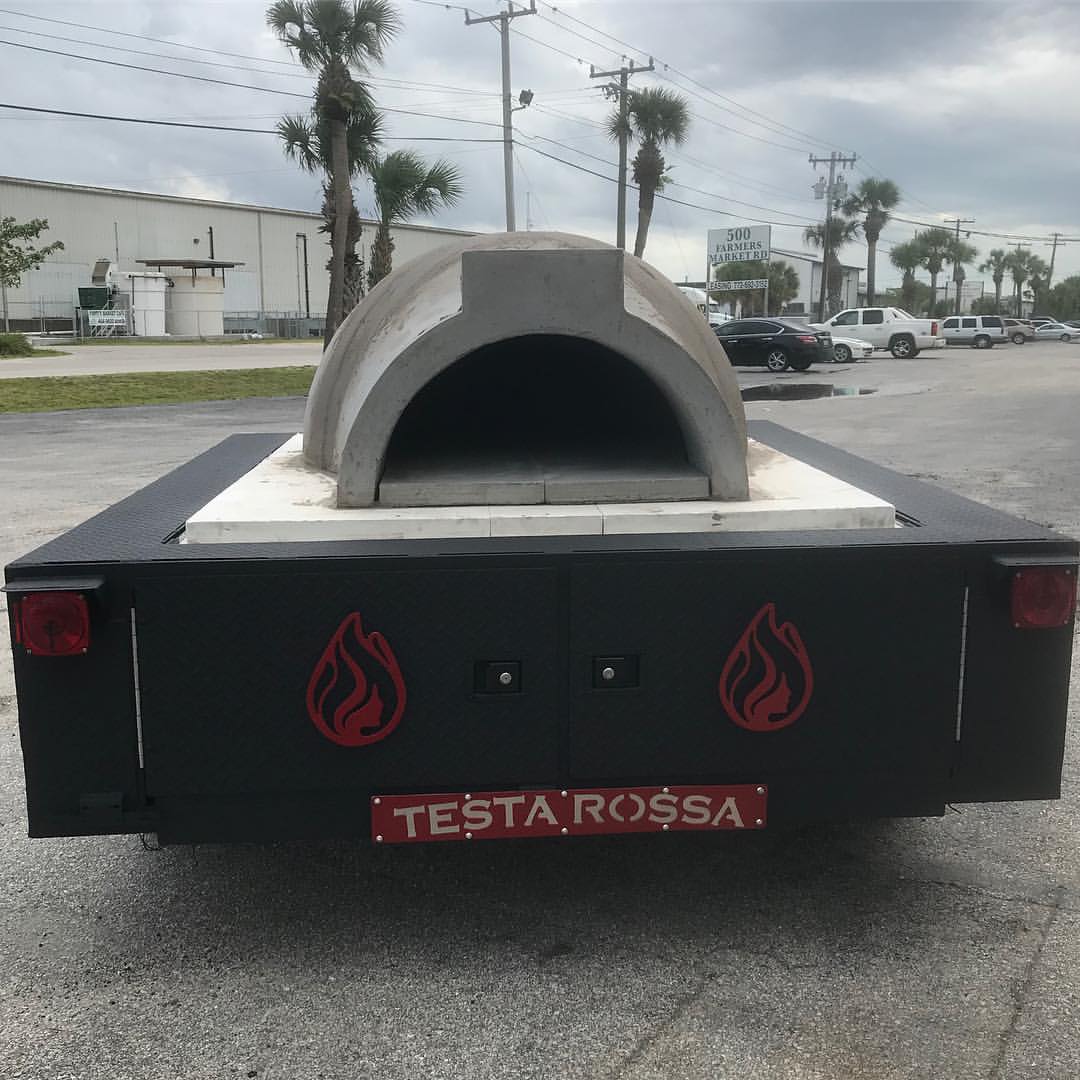Here are eight steps you will need to follow for starting your own food truck pizza catering business.
1. Research Your Target Market
The majority of food trucks fail within just three years. Like with most businesses however, success is a matter of planning.
Firstly, make sure you’re addressing a demand in the market. If there is a hole in your local market for pizza catering businesses, then you’re in!
Then, find a spot for your food truck. One of the biggest advantages of owning a food truck is that you can meet your customers where they are. So find a place where customers can find you easily. Many food trucks frequent the same spots regularly.
Finally, check out the competition. What cuisines are available in your area? You should also figure out what days are busiest.
2. Find Your Name and Concept

Narrow down a concept and name for your food truck. Just because you’re using baking in a pizza oven, doesn’t mean you’re stuck making pizza. Many foods will benefit from that unique, and delicious smoky flavor.
Even pizzas have a lot of options. Will you serve vegan pizza? Gluten-free pizza? Meat lovers pizza? The options are endless. But make sure to take consumer demand into account.
You should also make sure that the name you choose for your food truck business in unique. But it shouldn’t be so unique that no one can remember it!
Finally, finish off your branding with a quality logo design. You will be showcasing this logo on your food truck, menus, and promotional materials. So you want to make sure it’s a top quality logo!
3. Make Your Business Plan
Like any other business, you need a well prepared business plan. But you don’t really need to make a hundred page business plan like they did in the olden days. For most people, a value proposition canvas like the one from Strategyzer will work just fine. However, some lenders will still want you to have a completed business plans.
When starting your food truck business, you will also want to set up an LLC. This will come in handy when you apply for vendor licenses. It will also be useful in case you decide to apply for start up funding.
4. Get the Relevant Licenses and Registrations
There are at least two types of licenses and permits that you will need. These are business licenses, and food service permits. Generally, food truck licenses and permits will cost around $100 and $500. However, you may need additional permits, depending on your location. So make sure to do your research.
Planning on hiring employees? Then make sure to get your employer identification number from the IRS.
You will also need to look into parking permits and regulations. This is because food trucks can’t park in the same places as normal cars. Make sure you don’t forget to also register you food truck.
Finally, some locations require you to have a commercial kitchen to prepare your food.
5. Get Financing for Your Food Truck Business
A successful food truck can bring in over $500,000 per year. But startup costs can be hefty. Generally, you will be spending at least $40,000. But it can cost as much as $200,000. The majority of people don’t have this kind of capital. So financing your business might be an important step.
There are many options for financing your food truck business. Whichever one you choose, it is important to map out exactly how you will use the funds. You will also need to come up with a plan for repaying the borrowed money. Your financial projections should also include the minimum gross revenue you will need to cover expenses and loan payments.
6. Design Your Menu Board
Attach your menu board to the side of your food truck. This is the best way to showcase your food. Its design should reflect your chosen branding. It should also be legible, with clear descriptions of your food.
7. Purchase Your Food Truck
Invest in a quality food truck. This will save you from the headache of constant repairs. You should also try to look for a local food truck builder. This will help ensure that all your specifications are met. For example: you can make sure you can attach your pizza trailer to your vehicle.
You will also need to make sure that your food truck has equipment that is up to code. This will include the following:
- Properly working refrigerators and ovens
- Cold and hot water available
- First aid kits
- Fire extinguishers
- Proper food storage
You will also need to make sure to get insurance for your food truck. Here are some of the types of insurance you will want to consider getting:
- Commercial vehicle insurance
- Property insurance
- General liability
- Workers comp
- General auto insurance
8. Market Your Food Truck
A good food truck marketing strategy involves both online and offline marketing.
Here are some good ways to marketing your new pizza catering business:
- Social media marketing
- Targeted postcards
- Participate in local events
- Create a website

